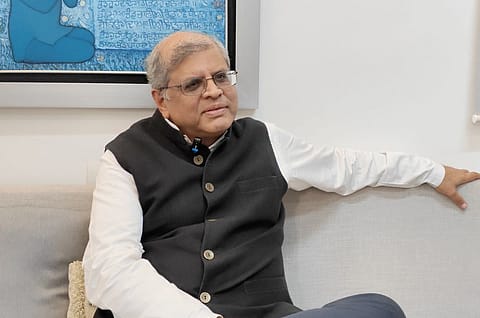Bain Capital betting big on India as the Big Get Bigger in PE
According to Amit Chandra, the firm is committed to significantly increasing its exposure, aiming to invest $5–7 billion in India over the next five years

The Boston-based Bain Capital is gearing up for a new chapter in its Indian growth story, with plans to double down on its investments in the country. According to Amit Chandra, chairman of Bain Capital India, the firm is committed to significantly increasing its exposure, aiming to invest $5–7 billion in India over the next five years — nearly doubling or tripling its historical investment pace. The firm, which set up office in India in 2008, has already deployed $6–7 billion in India.
The aggressive push comes as the PE fund, which manages over $185 billion in assets, identifies a consolidation trend in the private equity (PE) space, where established players with proven track records are thriving, while newer or less-established funds are struggling to raise capital. Globally, private equity groups are sitting on a record 28,000 unsold companies worth more than $3 trillion, according to a report by Bain & Co., the management consulting firm.
"The 'big getting bigger' narrative isn’t just about companies; it applies to funds as well," says Chandra, adding, "Firms with strong track records will grow larger and attract more market share, while funds with less exceptional performance will face challenges."
India has long been a critical part of Bain Capital’s Asia strategy, alongside markets like China and Japan. Chandra emphasises that India is now among Bain’s top two markets in Asia. Historically, the country accounted for 20% of Bain’s Asia portfolio, but the firm is looking to increase that share as it ramps up its investments. “We’ve always believed in India’s growth story,” says Chandra, who was in Varanasi as part of Sankalp Bharat Summit. "The sectors we’ve focused on—financial services, industrial IT, and healthcare—reflect the broader trajectory of the Indian economy," Chandra tells Fortune India.
Unlike some peers, Bain Capital has not ventured into renewable energy due to its focus on sectors aligned with its general fund mandate. "We don’t operate an infrastructure fund like Brookfield, so our investments have been concentrated on areas where we see long-term structural growth," Chandra explains.
Consolidation is on
As interest rates rise and global markets adjust to new economic realities, the cost of capital has increased, raising the bar for returns. Chandra points out that tougher conditions often lead to a flight to safety, with limited partners favouring funds with proven track records. This creates a challenging environment for newer or smaller funds. “New funds will find it harder, and those without exceptional track records will face headwinds. On the flip side, established funds such as ours will benefit as capital consolidates around players with strong credentials,” says Chandra.
Recommended Stories
Global private equity fundraising experienced a slowdown in the first half of the year, with $365.75 billion raised, according to data from S&P Global Market Intelligence and Preqin. If the trend persists through the rest of 2024, S&P expects total fundraising for the year to decline by 20% compared to the $919.27 billion raised in 2023. Global private equity fund launches stood at 365 in the first half of 2024, down 47% from the first half of 2023.
According to Chandra, this phase of consolidation is not new to private equity. Over the past 40–50 years, the industry has witnessed cycles where only the fittest survive. During periods of market tightening, PE firms with strong historical returns typically emerge stronger, managing larger funds and dominating the landscape.
For Bain Capital, this is not just a short-term adjustment—it’s part of the evolution of private equity as an asset class. Chandra points out that the industry has always adapted to macroeconomic cycles, emerging more robust after periods of turbulence. “Private equity is about long-term value creation,” he says, adding, "Even when interest rates were 6% two decades ago, impact investing and private equity flourished."